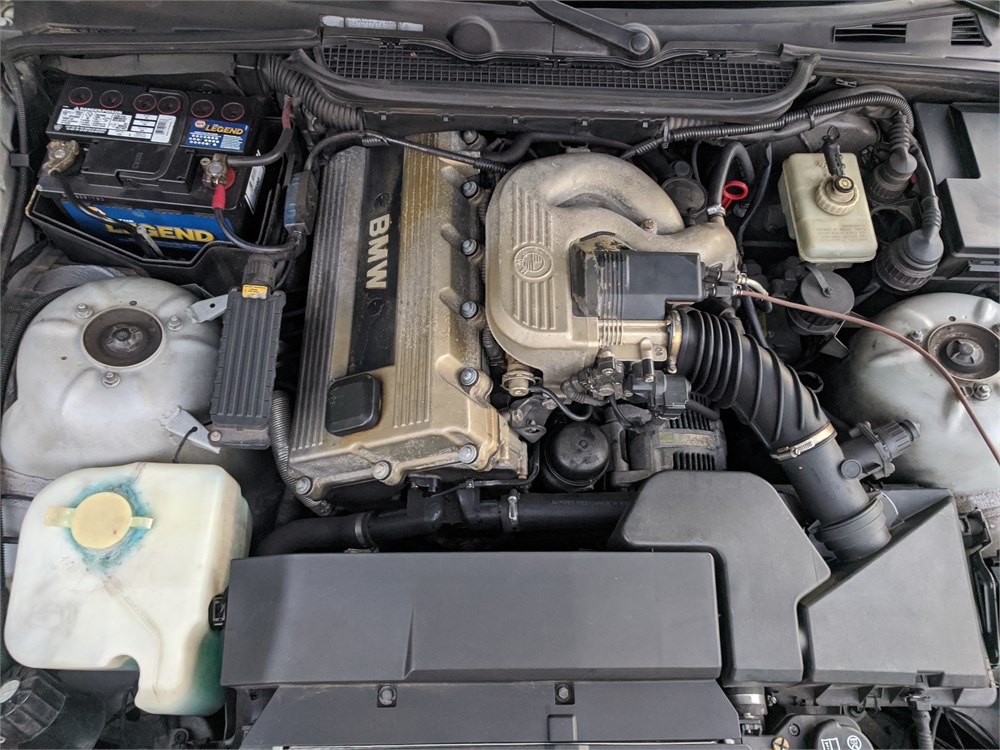BMW 318ti: Efficiency Specifications and Features Explained
BMW 318ti: Efficiency Specifications and Features Explained
Blog Article
Essential Considerations for Selecting the Best Engine for Your Demands
In the world of selecting the ideal engine to meet your needs, numerous essential aspects need precise consideration to make certain optimum efficiency and performance. From the nuanced balance between power and efficiency to the often-overlooked aspects of maintenance and service requirements, each facet plays a critical function in establishing the most appropriate engine for your certain demands.
Power and Efficiency
When reviewing engines for optimum efficiency, it is crucial to focus on both power output and efficiency. Power output determines the capability of an engine to produce energy, which directly impacts its performance. A high power output is essential for demanding jobs such as sturdy applications or high-speed needs. It ensures that the engine can handle the work successfully and effectively. Power alone is not enough; performance plays a considerable duty in establishing the general performance of an engine. Performance refers to how well the engine transforms fuel right into functional power. An extra effective engine will supply much better mileage, lower emissions, and reduced operating expense. Striking the best equilibrium between power result and effectiveness is key to selecting an engine that satisfies your specific requirements. It is vital to consider aspects such as the intended usage of the engine, environmental influence, and long-term price implications when making this choice. By thoroughly evaluating both power and effectiveness, you can pick an engine that delivers ideal performance and satisfies your demands effectively.
Fuel Performance and Economy
In the world of engine choice, the factor to consider of gas efficiency and economy holds paramount significance. Gas effectiveness describes the engine's capacity to transform gas right into energy with very little waste, straight affecting operating prices and ecological sustainability. bmw 318ti. When picking an engine, reviewing its gas economic situation is crucial to identify long-term savings and environmental impact. Engines with greater gas effectiveness not only minimize fuel expenses but also lower carbon exhausts, adding to a greener operation.

Compatibility and Application
Taking into consideration the fuel performance and economy of an engine, the next critical aspect to address is its compatibility and application within certain functional contexts. Compatibility refers to exactly how well the engine incorporates with the overall system or equipment it powers.
Additionally, the application of the engine is just recommended you read as important. Different engines are made for specific functions, whether it be commercial equipment, marine vessels, vehicles, or power generators. Comprehending the designated application enables the selection of an engine that can provide the needed power result, torque, and operational qualities. For circumstances, a high-revving engine made for efficiency vehicles would not appropriate for heavy-duty construction devices that needs high torque at reduced rates.
Maintenance and Solution Requirements
Maintenance and solution needs play a vital role in guaranteeing the durability and optimum performance of an engine. Routine upkeep is important to avoid failures, expand the lifespan of the engine, and preserve its effectiveness. When selecting an engine, it is crucial to you could check here consider the manufacturer's recommended maintenance routine and the schedule of solution facilities or certified technicians.
Elements such as the regularity of oil changes, filter replacements, and general examinations can considerably affect the engine's performance. Some engines may need even more constant maintenance based on their layout and usage, while others may have longer intervals between maintenance checks. It is important to view comply with these service demands to stay clear of pricey repairs and unexpected downtime.
Price and Budget Considerations
When picking an engine for a particular application,Spending plan constraints frequently play a considerable role in the decision-making process. When thinking about the expense and budget plan effects of selecting an engine, it is vital to assess not just the initial acquisition rate however also the long-term expenses connected with upkeep, fuel intake, and potential upgrades or repair work. It is crucial to strike an equilibrium in between the upfront expense of the engine and its general lifecycle expenses to ensure that the chosen engine continues to be financially sustainable throughout its operational life-span.
Elements such as fuel integrity, effectiveness, and resilience can directly impact the overall expense of possession of an engine. While a much more expensive engine might have higher upfront prices, it might potentially result in reduced maintenance and gas expenses over time, hence providing far better value in the lengthy run.
Final Thought

Gas performance refers to the engine's capability to transform gas into power with minimal waste, straight affecting operating expenses and ecological sustainability.Factors influencing gas performance consist of engine design, combustion effectiveness, and general performance optimization. Additionally, choosing the suitable fuel kind and quality as advised by the engine manufacturer can even more improve performance and lengthen engine life expectancy.
Engines with excellent utility features and readily available parts can decrease maintenance expenses and lessen the time the engine is out of procedure - bmw 318ti. It is essential to strike a balance between the in advance expense of the engine and its general lifecycle expenses to make sure that the selected engine stays economically sustainable throughout its functional life expectancy
Report this page